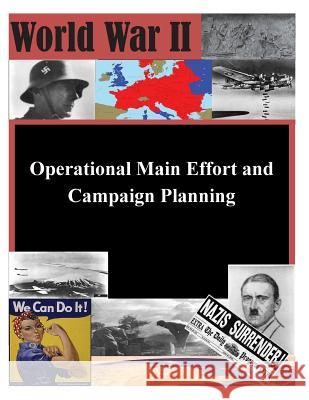Operational Main Effort and Campaign Planning » książka
Operational Main Effort and Campaign Planning
ISBN-13: 9781511734011 / Angielski / Miękka / 2015 / 58 str.
This study examines the main effort concept to determine if it is a necessary element for the design of a campaign plan. Current joint operational doctrine fails to address the main effort concept. This study examines service tactical doctrine, service operational doctrine, theory, and contemporary writers to articulate an operational main effort concept. The main effort concept and ends, ways and means variables are then used to analyze four campaigns: Germany's successful 1940 campaign to conquer France; Germany's unsuccessful 1942 campaign on the Russian Southern Front; Japan's unsuccessful 1942 naval campaign against Midway and Germany's unsuccessful 1940 air campaign against Great Britain. The element of proof in judging the need for the main effort concept in campaign planning was based on the concept's role in the success or failure in the above campaigns. This study concludes that a need for a main effort concept is supported by military theorists and current U.S. Army and Marine Corps operational doctrine. The main effort concept proved instrumental to the German's successful invasion of France in 1940. Improper application of the main effort concept by campaign planners contributed to the unsuccessful results of the remaining three campaigns. The main effort concept proved applicable to air and sea campaigns as well as land campaigns.
Zawartość książki może nie spełniać oczekiwań – reklamacje nie obejmują treści, która mogła nie być redakcyjnie ani merytorycznie opracowana.











